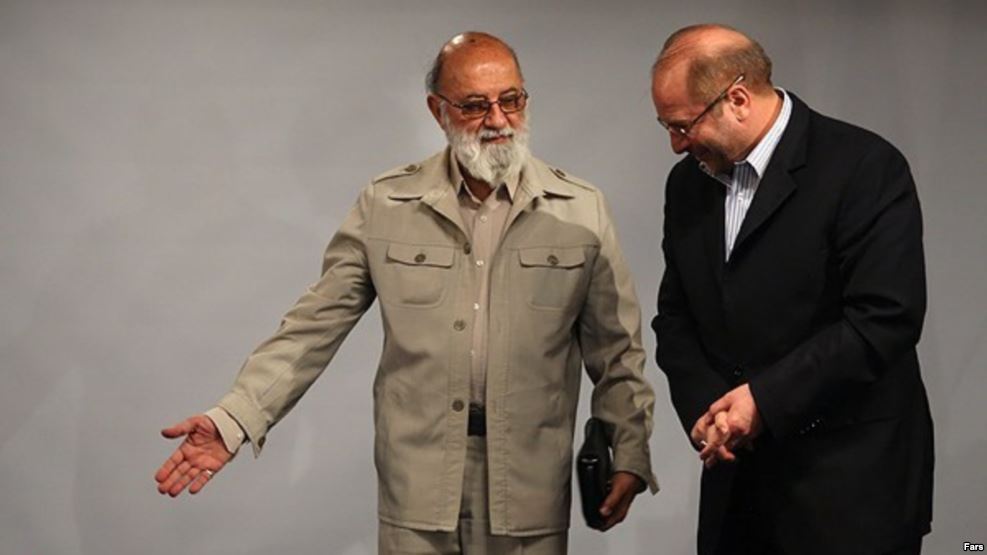 Iranhumanrights.org —Iran’s Judiciary must halt the prosecution of media outlets which carried out their journalist duty in publishing reports on alleged corruption in the Tehran Municipality and City Council, the International Campaign for Human Rights in Iran said in a statement today. Unless they are found guilty of a crime in court, the websites of these news organizations should be unblocked, the statement added.
Iranhumanrights.org —Iran’s Judiciary must halt the prosecution of media outlets which carried out their journalist duty in publishing reports on alleged corruption in the Tehran Municipality and City Council, the International Campaign for Human Rights in Iran said in a statement today. Unless they are found guilty of a crime in court, the websites of these news organizations should be unblocked, the statement added.
Memari News, an independent website dedicated to news about architecture and urban development, has been suspended for publishing a letter from Iran’s National Inspection Organization to the Tehran Municipality that declared the sale and grant of certain lands to municipality workers and other officials to be against the law.
“The Tehran Prosecutor’s suspension of a website for publishing an official letter is a blatant abuse of power aimed at suppressing media organizations that are trying to keep officials accountable for their actions,” said the Campaign’s executive director Hadi Ghaemi.
“The Judiciary is making a mockery of its claim to be fighting corruption and protecting the rights of citizens by closing down news sites that expose unlawful activities,” Ghaemi added.
Memari News noted in its report that the letter from the National Inspection Organization was not marked classified. The organization investigated Tehran Municipality under Article 598 of the New Islamic Penal Code which deals with abuse of government funds and properties and found violations in excess of 2.2 trillion tomans ($702 million USD). It pointed fingers at several senior municipality officials as well as city council members, Members of Parliament and police officers.
Following publication of the report, Mayor Mohammad Bagher Ghalibaf and City Council Chairman Mehdi Chamran filed a complaint against Memari News and the Tehran Prosecutor ordered its suspension. The report was deleted and access to the entire site was blocked, even though Memari News has not been found guilty of any crime and no official has contradicted the validity of the letter it published.
“Instead of punishing those who are carrying out their responsibilities and contributing to the public good by reporting corruption, the authorities should be pursuing those accused of violating the law,” Ghaemi said.
In addition, eight other news sites, including Borna and Moj have been suspended on orders from the Tehran Prosecutor because of similar complaints in connection with the National Inspection Organization’s letter. Shargh newspaper also published a report about the letter’s allegations.
Yashar Soltani, the editor in chief of Memari News, who was summoned to Branch 2 of the Tehran Press Court, said they had not been “served any court rulings” and “without their appearance in court” prior to the website blocking. Instead, he added, the Working Group to Determine Instances of Criminal Content on the Internet (Iran’s principal online filtering body) had sent an email toShatel Internet services company, which hosts Memari News, demanding the site be blocked immediately.
Culture and Islamic Guidance Minister Ali Jannati, however, denied that the Working Group to Determine Instances of Criminal Content on the Internet was involved in blocking Memari News. He said the order instead came from “Judiciary officials.”
Meanwhile, Communications and Information Technology Minister Mahmoud Vaezi alsodistanced President Hassan Rouhani’s government from the recent website suspensions. “The government has not blocked any website. The news sites blocked in recent days were ordered by the Judiciary,” he said.
Yet Amir Mortazavi, the editor in chief of Moj, also said his site had been blocked by the Working Group to Determine Instances of Criminal Content on the Internet. “We have contacted them numerous times but they still haven’t given an answer [as to why we have been blocked]. All they told us on the phone was that we’ll know the reason when we appear in court,” Mortazavi said.
All the websites blocked have the “.ir” domain, indicating their host company is inside Iran and thus accessible to the authorities. If these sites had been hosted as a “.com” instead, their content could not have been altered or deleted by Iranian agencies.
The Islamic Republic is determined to control Internet traffic in the country, and has been developing its own state-controlled National Internet (essentially an Intranet) whose primary purpose is to close Iranian citizens off from the global Internet and monitor their online activities. Last week the Ministry of Communications and Information Technology unveiled the first phase of the homegrown Network.
“Company executives have told me in private that they prefer to have their servers managed abroad because if they are filtered they won’t lose their foreign customers,” Vaezi said last March.
Based on a 2006 government directive, all Iranian websites should be registered with the Culture and Islamic Guidance Ministry’s Office of Internet Sites. If the office determines that a site has published something against the law, it can order it to be deleted. If the site editors refuse, the office can order the host company to delete the content instead.
“Blocking news sites based on complaints filed by individuals, such as the Mayor of Tehran, without holding a trial, shows the influence of military and security figures over the Judiciary in suppressing the media and freedom of expression in Iran,” said the Campaign’s executive director.
Tags: Internet access, Internet Blocking, internet freedom, journalist, National Internet
 Shabtabnews In this dark night, I have lost my way – Arise from a corner, oh you the star of guidance.
Shabtabnews In this dark night, I have lost my way – Arise from a corner, oh you the star of guidance.


